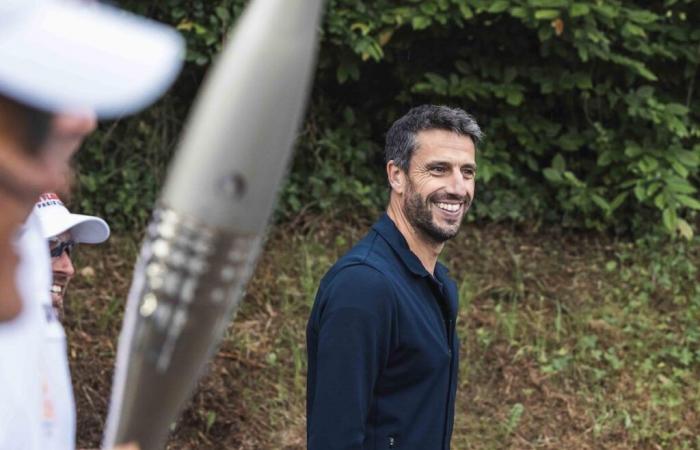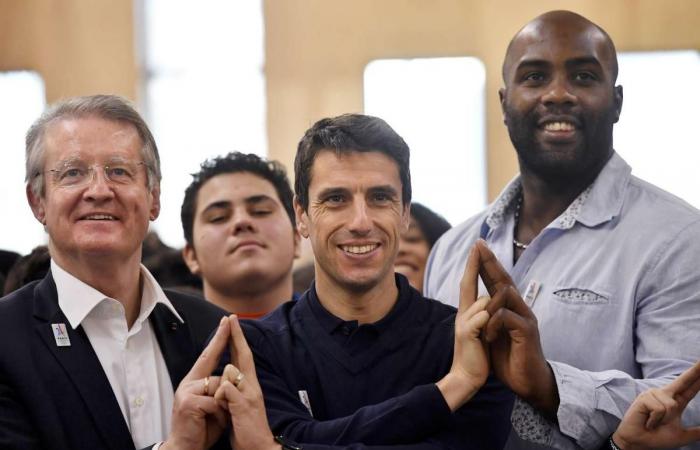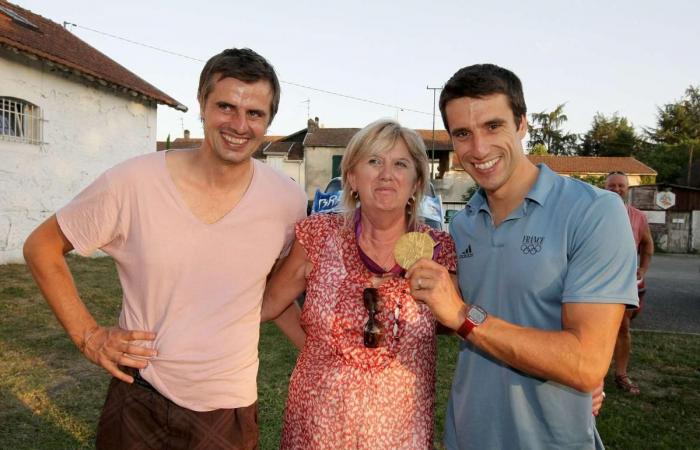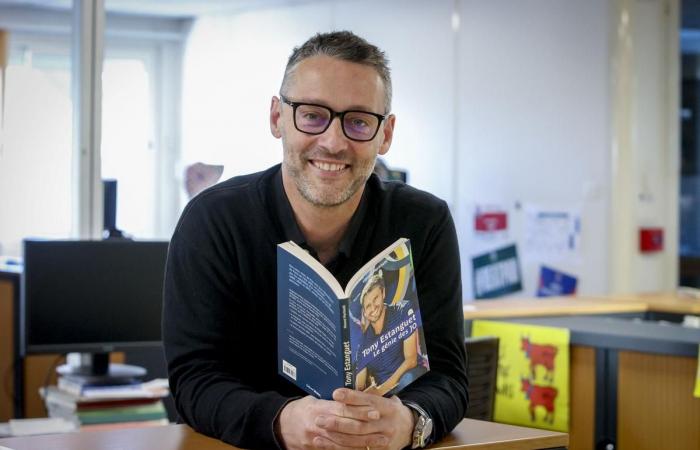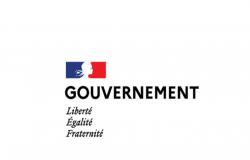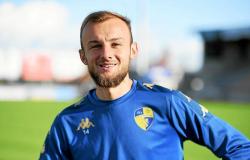Building a Champion
Aldric Estanguet speaking about the hatching of his little brother.
“In January 1993, the Estanguet family headed for Brittany, which hosted the first competition of the year, on Ellé, at Roches du Diable. ''It curdled terribly,'' Aldric remembers. ''Tony was still only a first year cadet, and at the time he had beaten the reigning senior world champion, Martin Lang, in one round, who had a rotten but very physical style. I can tell you that he looked at the German and said to himself: but who is he? And I see that at 14, the guy is going to beat the world champion. It’s something that really struck me.”
Patrice Estanguet recalls their fratricidal duel during the 2000 Olympic selections.
“'At that moment, we want the same thing and there is only one place. We know that we have to beat the other, so there is no logic in preparing together. There isn't too much competition nearby, so obviously we can't collaborate on this project. And for me the change happened there, when he won the selections for the Sydney Games. Before that he had made one or two international podiums but it was really occasional. He struggled to perform consistently. And from the moment he won the selections, in addition to the Sydney Games, he was European champion, he won several international races… Results he had never achieved before. So, we can still estimate that there is a very strong trigger there. He went from a promising young athlete to an international leader. I had a good Olympics, won the World Cups in 1996, 1997, I was in the two or three best in the world. So from the moment he beat me, he said to himself that he could expect at least the same type of results. It sparked confidence in him […]. To have this confidence, you must have already won. I think that's what Tony was missing before.'”
Tony Estanguet in training, in Pau, in 2008 on the brand new white water stadium.
Archives Jean-Philippe Gionnet
The manager: the emergence of the Estanguet method
“Tony Estanguet not only wanted to control the project, he absolutely wanted to embody it. And it’s impossible to take things lightly. At the end of 2014, for example, he came away pensive from an event organized in Vincennes at the National Institute of Sport, Expertise and Performance (INSEP) during which the President of the Republic , François Hollande, spoke to an audience of athletes and sports startups.
''He spoke for around twenty minutes, he was very comfortable speaking, quite charismatic, quite funny,'' remembers Benjamin Brun. ''Tony came out of there telling us: he's good! I'm not at that level, I need to progress. What seemed like a somewhat playful sentence was not at all.
''He always set fairly high goals for himself, but at the same time had no difficulty accepting the fact that he had to work to achieve them.'' […] Always with this technique which was so successful for him. Work and repetition. ''Yes, he is extremely meticulous and demanding, that's for sure. On the Lausanne speech, in July 2017, during the application phase, which was the most important speech, we made 58 versions. It was cut into three parts, in total he had to speak six or seven minutes, we spent a month there, working on each word, each idea, seeing how to strengthen it. Same with the speech at the Olympic opening ceremony: we had 56 versions!’”
After Paris 2024 and freedom regained
“Four months later, comforted by the total success of the Paris 2024 adventure, he has not moved one iota and savors more than ever the fact of having once again become the master of his own clocks. In addition, the situation hardly encourages haste. Go back to attack the International Olympic Committee, as he did in 2012? Tony Estanguet should already start by becoming a member again, he who returned his card in 2021 at the end of his mandate, after taking control of the Parisian candidacy.
It is therefore even more difficult to imagine him taking the presidency. The process of replacing President Thomas Bach, until the election in March 2025, is well advanced and France has already presented its candidate, David Lappartient, current president of the French National Olympic and Sports Committee.
AFP
Surrounded by Bernard Lapasset and Teddy Riner in 2017, for the Paris candidacy.
Consider a ministerial portfolio, driven by its Olympic success? He is too accustomed to the turbulent waters and the creatures that lurk there to risk his credibility there. With, no doubt in the back of his mind, the sentence uttered by his brother Patrice, once again perfect in the role of guide, when he left his short-lived mandate as municipal councilor in Pau in 2008: ''I found that in politics it was more effective to destroy than to build…''
So after seeing the fate reserved for other champions who have swapped their favorite fields for a ministry, like recently the swimmer Roxana Maracineanu or the fencer Laura Flessel… Tony Estanguet, for his part, dodged this scenario during his major closing conference of the Paralympic Games, feigning naivety but without hiding his reluctance!
''I'm a little surprised, I've been asked this question a lot in recent days as if the outcome of any success must necessarily be in politics.'' And at the end of October, no surprise when the newspaper L'Equipe revealed that it declined the offer made by Michel Barnier, Prime Minister, to migrate to the 13th arrondissement to take charge of the Ministry of Sports. »
Archives Jean-Philippe Gionnet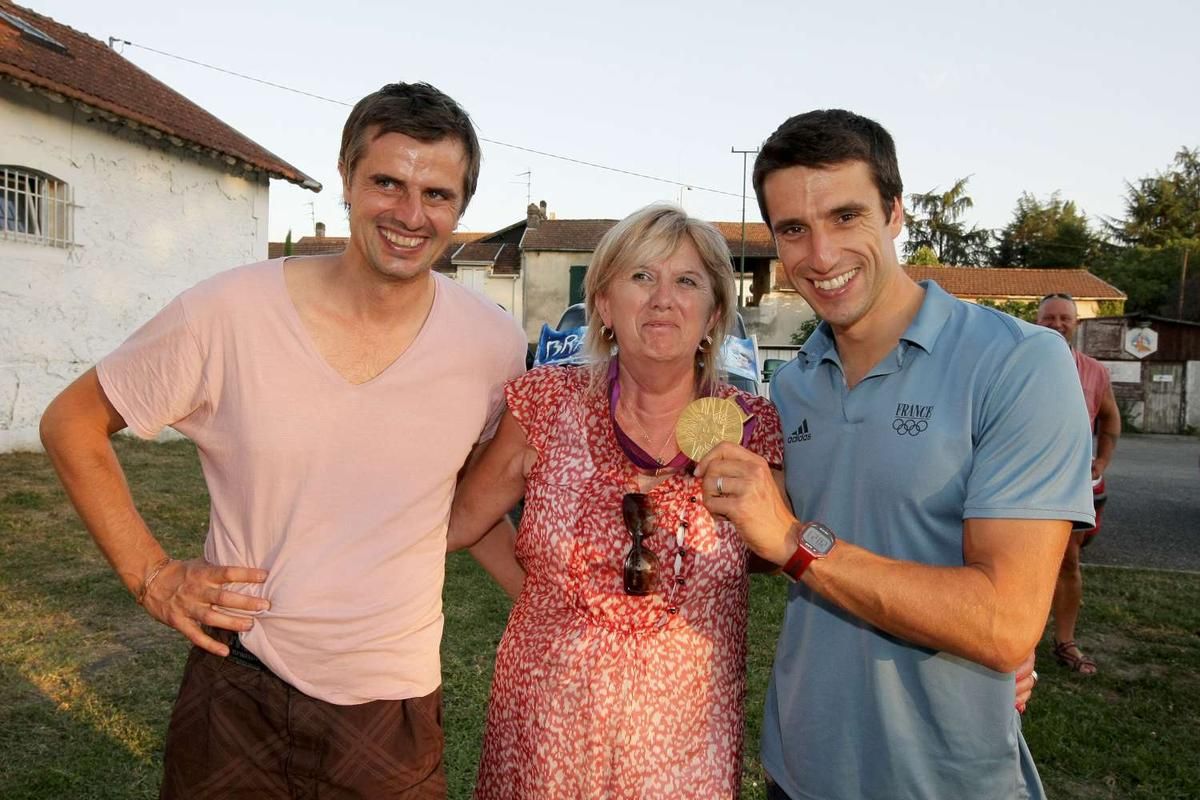
Aldric, Maïté and Tony Estanguet, in 2012 after the London Olympics.
His mother: “Tony was a little overprotected but he had a great childhood…”
“Their sport, at that time, was also practiced a lot in their street in the Berlioz district, during a 'fairly happy era'.
''There were lots of little houses and lots of children. So we played every night after school. We played football, cycled, skated, played marbles, we didn't stop…'' It was in this very special environment that Tony Estanguet developed his taste for sporting effort, as the youngest child obliged to compensate the age difference with Aldric and Patrice, his elders born respectively six and five years before him.
''Raising three boys wasn't that complicated after all, remembers Maïté Estanguet. The two elders followed each other very closely. So they were arguing. Tony was a little overprotected, but he had a good childhood, I think.'' As if he was born obsessed with the clock, Tony Estanguet came into the world on May 6, 1978 two months early and a premature label which warrants particular vigilance.
''We were careful since we were told he was fragile. There was a somewhat complicated year, but he didn't have any particular problems.'' Already, an anecdote occurs in his mother's story which says a lot. On their return from school, the brothers who learned of the birth of their youngest also discovered that the first name their parents favored was Laurent, in homage to their grandfather. It ultimately won't happen like that…
''They immediately said it wasn't okay,'' remembers his mother. ''It was categorical: his name must be Tony. And there you have it, it's a little Tony!'' […] This first name affair is edifying. On the one hand, the pronounced listening of the parents to their children in a choice which is not insignificant, on the other the equally strong desire of the two boys to assume their responsibilities towards a little brother that they are just discovering and that they integrate into the collective with determination. “It’s also quite symbolic, I think, of the strength of the bonds they have with each other.”
5 questions to Vincent Martinelli, journalist and author of the book
Rodolphe Martin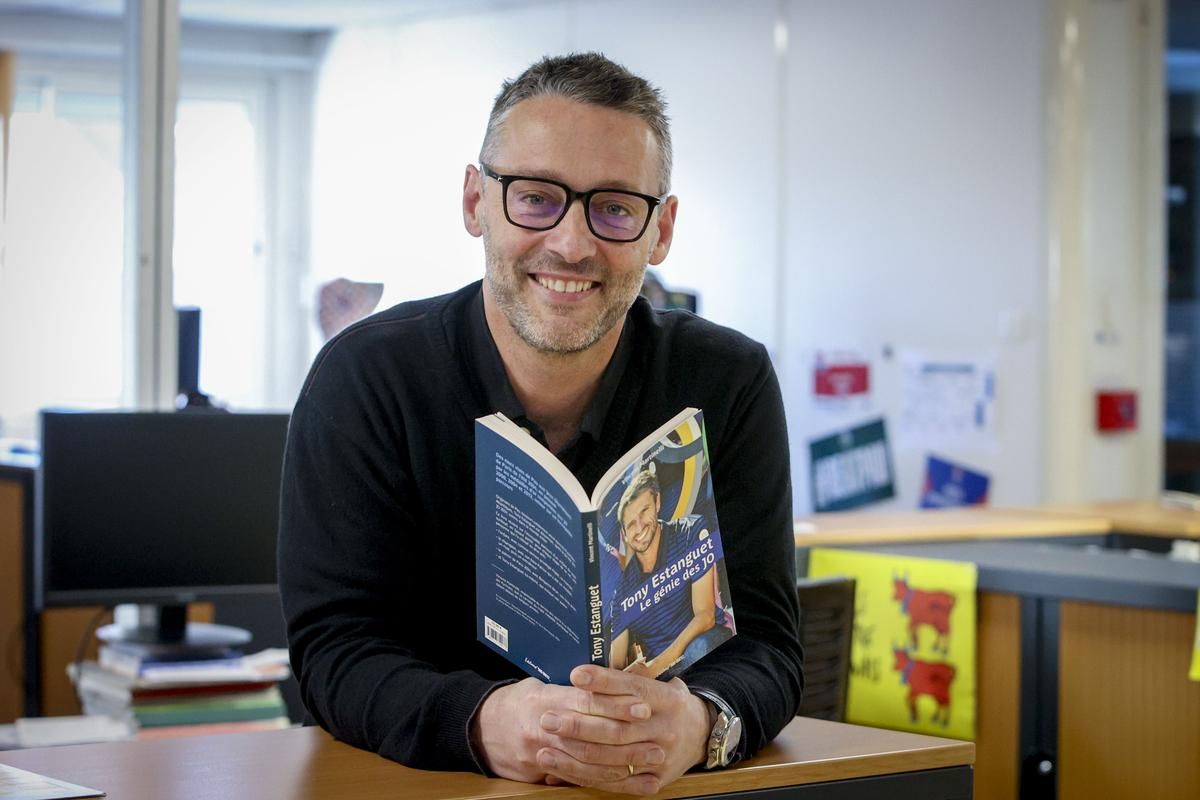
Vincent Martinelli.
What were your motivations for writing this book?
I've been thinking about it for two years. Eventually, accumulating papers on him, I wanted to dig deeper, develop his trajectory and tell the story of this Olympic decade. I wanted to highlight a little more intimate things about his journey. Which we rarely have the opportunity to do in a press article, where we are particularly constrained by volumes. When Éditions Sud Ouest indicated that they wanted to do a book on a sports personality and start with Tony Estanguet, I said banco. There, I was able to take the time, in the tone of discussion, to talk to people who never speak, like his mother Maïté.
Was it complicated to convince those close to Tony?
We had to break down one or two barriers. Tony's enormous exposure causes his clan to tend to protect themselves. He has always had a very pronounced team spirit. But with the Olympic madness, there is a kind of very legitimate self-protection. Once my project was explained, it was no problem.
How long have you known Tony Estanguet?
The first time I interviewed him was in the summer of 2003, for a story on international competitions, when I was a trainee journalist at Sud Ouest. Then, for the République des Pyrénées and l'Eclair, I covered canoeing from time to time. But I really developed a working relationship with him when he retired in 2012. I practiced Tony as a leader and candidate more than Tony as a multi-champion and monster.
Have you discovered anything about him yet?
I knew the vast majority of what I was told. What was interesting was seeing the pieces come together. You understand the way he works today, with elements that go back to childhood. Without everything he accumulated from a young age, he would not have achieved what he achieved last summer.
Did he know about the book?
Yes. We have always had a frank relationship. There was no permission to ask. I told him that I was writing a book and in fact there is a chapter, which concerns his future, in which he intervenes.
Collected by Pierre-Olivier Julien
“Tony Estanguet, the genius of the Olympics”, to be published on December 6 by Editions Sud Ouest. Pre-orders are already possible on specialized sites as well as on the Sud Ouest online store, and soon on the Republic of the Pyrenees online store. 16.90 euros.

